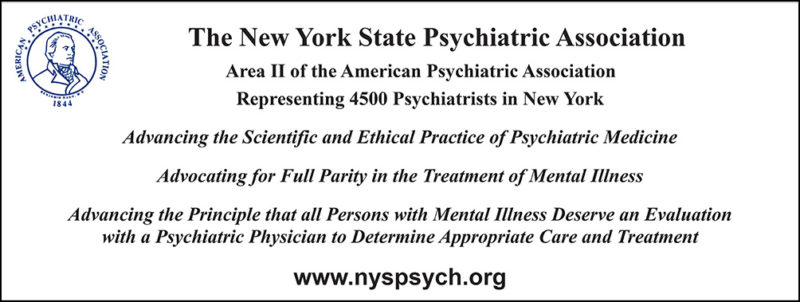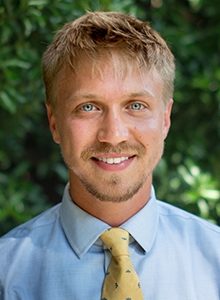“Honestly this might be the most rewarding work I’ve done in Psychiatry yet,” one of my co-residents Alex told me recently after completing an evaluation at SUNY Downstate Asylum Clinic. The clinic, completely run by medical students and resident and physician volunteers provides free medical and psychological evaluations as well as medical-legal affidavits for people who have fled their country after being persecuted for their race, religion, political opinion, or, as it was in this case, after being tortured for being gay (a member of a particular social group). The man Alex helped, like so many other asylees, lacked any physical wounds but carried profound psychological scarring. Alex and the team were able to document this proof of his persecution, which will prove enormously helpful in securing this man’s asylum status.

Historically, people applying for asylum without an evaluation documenting their medical or psychological injuries had barely a 30% chance of being successful, compared to a 90% approval rate for those with an evaluation in hand. With the pandemic and sweeping political changes over the last several years, the gap in these numbers is certainly even wider. Those expelled back to their home country or, in many cases, simply south of the border face grave danger, with over 7,500 accounts of rape, torture, kidnapping, murder, and other human rights abuses documented among asylum seekers sent to live in Mexican towns near the border. When being forced to leave the US means fear of these potential fates, the adage in this line of work rings true, now more than ever: “take a case, save a life.”
Alex’s reaction as the volunteer evaluator is also by no means uncommon. Speaking to him afterward, he excitedly told me about the process of piecing together the interview, matching the client’s statements with various diagnostic criteria, and the general joy in writing a rock-solid affidavit, “all to help this poor dude.” Knowing the impact that this work will have, he started talking about his budding interest in Forensic Psychiatry, prompting another discussion about how to continue this type of work as a fellow and attending. Alex was not only energized and engaged – after becoming a volunteer – he was also gaining insight into a future career. Unfortunately, this boost of engagement contrasts with the more common trainee trajectory.
Residency is ripe with reasons to experience burnout. Many enter medicine with the desire to help people, but after long hours, frustrating administrative tasks, and electronic medical record (EMR) issues that place barriers between the provider and patient, residents start to feel overwhelmed, unmotivated and find themselves unable to cope. Attitudes shift and become cynical, ultimately leading to poorer job performance. About 50% of physicians in training and practice report some feelings of burnout, which is 15 times more likely than professionals in any other field. Feeling this way not only leads to poorer physical and mental health but also to a profound psychological disconnect from work, co-workers, and patients – the people we originally felt so motivated to help.
Seeing burnout and engagement as opposite ends of a continuum, structurally affording people the time and opportunity to volunteer may help decrease stress, build resilience, and re-engage those feeling disconnected. Repeated studies have shown a positive relationship between volunteering and psychological well-being in various populations: from teens to people with disabilities including serious mental illness to older adults in retirement. This article is not meant to be a review of the literature, but some studies looking at volunteering and burnout in medical professionals have seen similar results. One study found decreased levels of stress in medical trainees who volunteer, and another study looking at volunteering as an intervention to burnout found a drop in physician and nurse burnout characteristics following a volunteer global health experience.
Asylum work, global health experiences, free clinics, and homeless outreach efforts, to name a few common and rewarding medical volunteering activities, all may offer similar routes towards re-engagement. They provide direct, defined, and impactful ways to help people. Ideally, they exclude the organizational stressors like insurance demands and burdensome EMR tasks that lead to burnout and allow volunteers to return to a more personal and autonomous approach and to spend as much time on a task or with a patient as they want to. Senior volunteers may also be able to teach and discover a deep fulfillment in training the next generation of providers. Finding themselves to be helpful in this way may refresh their sense that their work is rewarding, that they are competent, and through their work, serve a greater good. As they re-engage, the person may find that their self-perceived value not only of their work but of their life, in general, has improved and that their cynical views of the world are changing.
To be clear, advocating for volunteers to meet these organization or population needs should not prohibit or displace people from being paid to do so. In fact, having both long-term, dedicated, and paid positions, as well as short-term, voluntary roles, may serve people’s needs best when done in concert. Additionally, volunteers in any role should seek to participate within long-term, locally supported, sustainable projects, with a realistic understanding of their role within the community and what they’re able to achieve. Receiving support from home institutions as well as having a background in understanding of the community and country in which the work is taking place are both vital to do in preparation and as an ongoing practice when working with underserved and often vulnerable groups.
Organizations that encourage volunteering and provide the opportunity to do so will likely nurture a more engaged and burnout-resilient group. Trainees may gain new skills and insights into career paths and more senior providers may discover a deep fulfillment in teaching. As a volunteer, knowing that you’ve been helpful, that you’re capable, and have played a meaningful part in bettering another person or organization, may not only aid the communities you’re assisting but also improve your view of yourself and general outlook on life. Just like Alex, choosing to volunteer might be your most rewarding experience yet.
Sam Jackson is a third-year Psychiatry resident at SUNY Downstate Health Sciences University in Brooklyn and a second-year APA Public Psychiatry Fellow.
References
- PHR Asylum Program. Physicians for Human Rights. (2021, September 1). https://phr.org/issues/asylum-and-persecution/phr-asylum-program/.
- Border restrictions lift, but Biden administration blocks protection for asylum seekers and children. Human Rights First. (2021, November 8). https://www.humanrightsfirst.org/resource/border-restrictions-lift-biden-administration-blocks-protection-asylum-seekers-and-children.
- Kenneth V. Iserson. Burnout Syndrome: Global Medicine Volunteering as a Possible Treatment Strategy. The Journal of Emergency Medicine, 2018, 54(4):516-521
- Shadid, A., Shadid, A. M., Shadid, A., Almutairi, F. E., Almotairi, K. E., Aldarwish, T., Alzamil, O., Alkholaiwi, F., & Khan, S. U. 2020. Stress, Burnout, and Associated Risk Factors in Medical Students. Cureus, 12(1) 6633
- Clark Campbell, Donell Campbell, David Krier, Ryan Kuehlthau, Todd Hilmes & Melissa Stromberger. Reduction in burnout may be a benefit for short-term medical mission volunteers. Mental Health, Religion & Culture, 2009, 12:7, 627-637
- Anderson ND, et al. The benefits associated with volunteering among seniors: a critical review and recommendations for future research. Psychol Bull, 2014, 140(6):1505-33.
- Cattan M, Hogg E, Hardill I. Improving quality of life in ageing populations: what can volunteering do? Maturitas, 2011, 70(4):328-32.
- Hallett C., et al. Volunteering in the care of people with severe mental illness: a systematic review. BMC Psychiatry. 2012, 12:226.
- Lindsay S. A scoping review of the experiences, benefits, and challenges involved in volunteer work among youth and young adults with a disability. Disability and Rehabilitation. 2016, 38(16):1533-1546.






